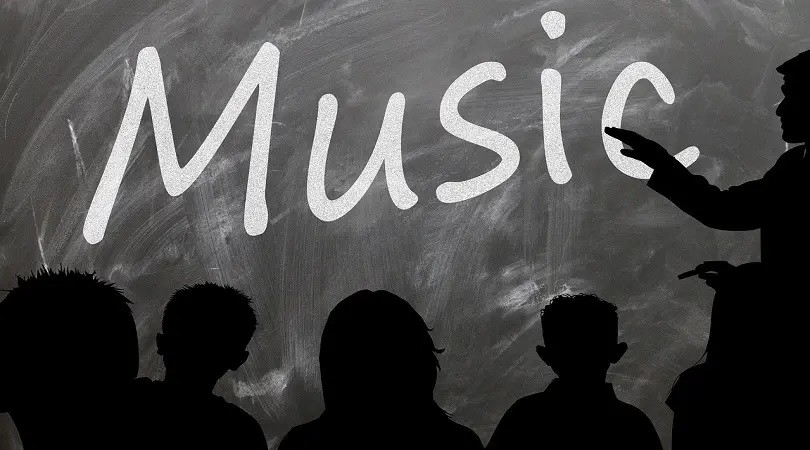Last Updated on January 6, 2025
Music has been a cornerstone of human culture since time immemorial, and its impact on children’s development cannot be overstated. Music is integral to developing young minds, from increasing brain function to developing emotional intelligence. This article highlights why parents should encourage their children to learn music and its many benefits for both children and their parents. If music education is something you’re considering for your little ones, consider music classes specifically designed for babies, which introduce children to this wonderful world early on.
1. Enhances Brain Development
A. Music can help build up children’s spatial-temporal skills, critical thinking, and problem-solving abilities. These cognitive enhancements can lead to better academic performance, making music an essential tool for holistic development.
B. The Mozart Effect is a well-known phenomenon that suggests listening to Mozart’s music may temporarily increase intelligence. While its merit has been debated, this shows some connection between music and cognitive functioning – complex melodies can stimulate our brains to increase processing capabilities.
Music plays a critical role in memory retention. Its rhythmic and melodic elements help strengthen brain pathways associated with recollecting information. Children frequently learn the alphabet through catchy tunes that incorporate music, showing just how music makes learning accessible and enjoyable. By enrolling your infant or young child in music classes for babies or toddlers, you are helping nurture artistic talents while setting a strong foundation for their cognitive growth.
2. Foster Emotional Intelligence
Music can evoke and communicate emotion, making it an effective means for children to express and comprehend their feelings. As children learn to play an instrument or sing, they gain the skill of conveying complex feelings through melody, harmony, and rhythm, providing an outlet for expressing feelings that might otherwise be difficult to articulate. They learn to appreciate different emotions and cultural perspectives through diverse musical genres, fostering open-mindedness and understanding.
Furthermore, music plays a significant role in building empathy. By listening to and playing music, children learn to interpret the emotions conveyed in a piece, which helps them develop their ability to connect with others emotionally. This skill is essential for forming meaningful relationships and contributing to a compassionate society.
3. Boosts Self-Confidence
Learning to play an instrument can work wonders for a child’s self-esteem. As they progress and become more proficient, they experience a sense of accomplishment and pride in their abilities. This newfound confidence often extends to other areas of their life as they realize their potential for growth and success.
Perseverance and mastery play vital roles in building self-confidence through music. Children learn that with dedication and hard work, they can overcome challenges and achieve their goals. This mindset is invaluable in all aspects of life, promoting resilience and a positive attitude.
Performing in front of an audience also has a notable impact on self-confidence. Overcoming stage fright and sharing their musical talent with others can be a transformative experience for children. Receiving praise and encouragement from their audiences, they develop strong self-worth and courage to face new challenges musically and in life.
4. Encourage Creativity
As children develop, creativity becomes essential to their well-being, helping them tackle problems creatively, adapt to unfamiliar circumstances, and express themselves. Music education is an excellent way to nurture this creativity. Learning to play an instrument, compose melodies, or improvise on existing tunes all require a child to tap into their creative potential.
Children exposed to music are encouraged to think outside the box and explore unique combinations of sounds and rhythms. This creative exploration enriches their musical experiences and spills over into other artistic disciplines, such as painting, writing, or dancing.
Singing, playing an instrument, and similar activities can improve speech, fluency, and vocabulary. Music therapy is great for children with autism spectrum disorder. It helps in developing essential social communication skills in a fun and engaging way.
5. Teaches Discipline and Time Management
Dedication, consistency, and patience are necessary for learning music. To master the skill of playing the instruments, practicing regularly is important. Children who engage in music lessons soon learn that progress is directly linked to the time and effort they put in.
Discipline and commitment play a significant role in a child’s musical development. They learn to set goals, manage their time efficiently, and persist through challenges. These invaluable life skills extend beyond the realm of music and are applicable to other areas of life, such as academics and sports. By nurturing a strong work ethic and time management skills through music education, children are better prepared to succeed in their future endeavors.
6. Fosters Social Skills
Participating in group musical activities, such as choirs, bands, or orchestras, provides children with ample opportunities to develop their social skills. These collaborative settings encourage children to work together, understand different perspectives, and strive for a common goal: creating beautiful music as a cohesive unit.
Teamwork and cooperation are essential in any musical ensemble, as each individual’s contribution is crucial to the group’s overall success. Children learn to listen, communicate effectively, and support one another in these settings. Through these shared experiences, they forge strong bonds with their fellow musicians, leading to a sense of belonging and camaraderie.
By engaging in group music activities, children develop their musical abilities and cultivate essential social skills that will serve them well throughout their lives, both personally and professionally.
Conclusion
Music education plays a pivotal role in children’s overall development, offering numerous benefits such as enhancing brain development, fostering emotional intelligence, boosting self-confidence, encouraging creativity, improving language and communication skills, teaching discipline and time management, and fostering social skills.
As parents, it’s essential to recognize the immense value of music in your child’s life and consider providing them with the opportunity to learn and grow through music. To give your children a head start in life, explore various musical opportunities available, be it learning an instrument, joining a choir or band, or simply encouraging them to appreciate music. Let the power of music unlock their full potential and enrich their lives in countless ways.








